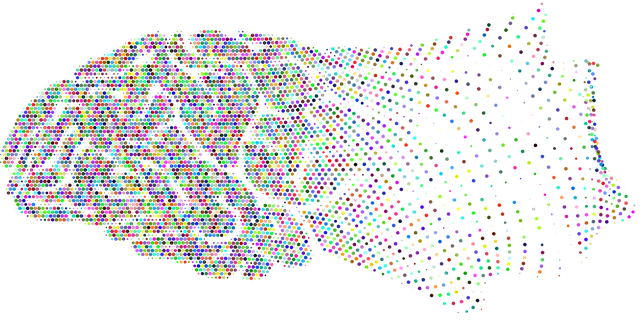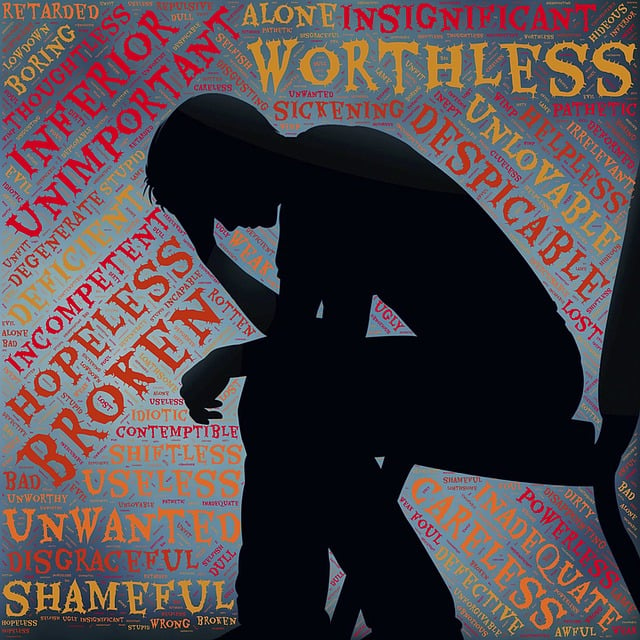Depression, a serious mental health condition with various forms and subtle signs, is addressed by Parker Child Abuse Therapy (PCAT), which offers a holistic approach focusing on young individuals affected by abuse or trauma. PCAT integrates art therapy, play therapy, and cognitive behavioral therapy to build resilience, enhance coping mechanisms, and promote positive self-image. Key prevention strategies include early intervention, lifestyle changes like regular exercise, balanced diet, and mindfulness practices, as well as building a strong support network through open communication.
Depression is a prevalent yet complex mental health challenge, affecting millions worldwide. This article explores comprehensive strategies to prevent and combat depression, offering valuable insights for individuals seeking well-being. We delve into understanding the signs of depression, highlighting the significance of early recognition. Additionally, discover the holistic benefits of Parker Child Abuse Therapy as an effective prevention method. Lifestyle adjustments, social connections, and building a supportive network are also key topics, providing practical tools to enhance mental resilience.
- Understanding Depression: Recognizing the Red Flags
- Parker Child Abuse Therapy: A Holistic Approach to Prevention
- Lifestyle Changes for Enhanced Mental Well-being
- Building a Supportive Network: Combating Isolation
Understanding Depression: Recognizing the Red Flags

Depression is a serious mental health condition that can significantly impact an individual’s daily life and overall well-being. Understanding depression involves recognizing its various forms and the subtle signs that might indicate its presence. Many factors contribute to the development of depression, including biological, psychological, social, and environmental influences.
The Red Flags of depression are diverse and may vary from person to person. Common indicators include persistent feelings of sadness, loss of interest in activities once enjoyed, changes in appetite and sleep patterns, fatigue, difficulty concentrating, and thoughts of worthlessness or suicide. It is crucial to be vigilant, especially in high-risk groups like individuals who have experienced child abuse or trauma, as these experiences can increase vulnerability to depression. Parker Child Abuse Therapy emphasizes the importance of early intervention and tailored support for such individuals, incorporating effective burnout prevention strategies for healthcare providers and comprehensive risk management planning for mental health professionals to ensure optimal care. Additionally, encouraging mental wellness journaling exercises can be a powerful tool to promote self-awareness and early detection of depressive symptoms, fostering resilience and timely interventions.
Parker Child Abuse Therapy: A Holistic Approach to Prevention

The Parker Child Abuse Therapy (PCAT) offers a comprehensive and holistic approach to depression prevention, particularly focusing on young individuals who have experienced abuse or trauma. This innovative therapy goes beyond traditional treatments by addressing the root causes of emotional distress, targeting not just symptoms but also the underlying factors that contribute to mental health issues. Through various therapeutic techniques, PCAT helps children build resilience, enhance coping mechanisms, and develop a positive self-image.
By integrating activities like art therapy, play therapy, and cognitive behavioral therapy, PCAT fosters an environment where children can express their feelings safely. Additionally, public awareness campaigns and social skills training components play a significant role in breaking the stigma surrounding mental health and encouraging open conversations. These efforts contribute to a broader strategy of confidence-boosting and emotional well-being, ensuring that young minds receive the necessary support to thrive.
Lifestyle Changes for Enhanced Mental Well-being

Adopting healthier lifestyle habits can significantly contribute to preventing depression and promoting mental well-being. Regular physical activity, for instance, has been proven to release endorphins that boost mood and reduce stress. A balanced diet rich in essential nutrients supports overall health, including brain function. Adequate sleep is another cornerstone; aiming for 7-9 hours nightly can help regulate hormones and maintain emotional stability.
Additionally, incorporating mindfulness practices like meditation or yoga into daily routines can foster emotional healing processes and enhance resilience to stress. The Parker Child Abuse Therapy approach emphasizes the importance of these lifestyle changes in supporting individuals through challenging life experiences. By prioritizing self-care and engaging in confidence-boosting activities, one can strengthen their mental fortitude and better navigate life’s ups and downs.
Building a Supportive Network: Combating Isolation

Depression can often stem from feelings of isolation and a lack of support. Building a strong, supportive network is a vital step in prevention. Connecting with others who understand and care can help combat the mental illness stigma reduction efforts and create a safe space for vulnerability. At Parker Child Abuse Therapy, we emphasize communication strategies that encourage open dialogues about emotions and experiences, fostering a sense of belonging and reducing feelings of isolation.
Resilience building through these connections is key to managing depression. By sharing stories, offering support, and providing a listening ear, individuals can enhance their coping mechanisms and develop stronger emotional resilience. This network serves as a buffer against life’s challenges, enabling better management of potential depressive episodes.
Depression is a serious yet preventable condition. By understanding its red flags and implementing strategies like Parker Child Abuse Therapy, lifestyle changes, and building supportive networks, individuals can significantly enhance their mental well-being. These holistic approaches empower people to navigate life’s challenges more effectively and foster resilience against depression.














